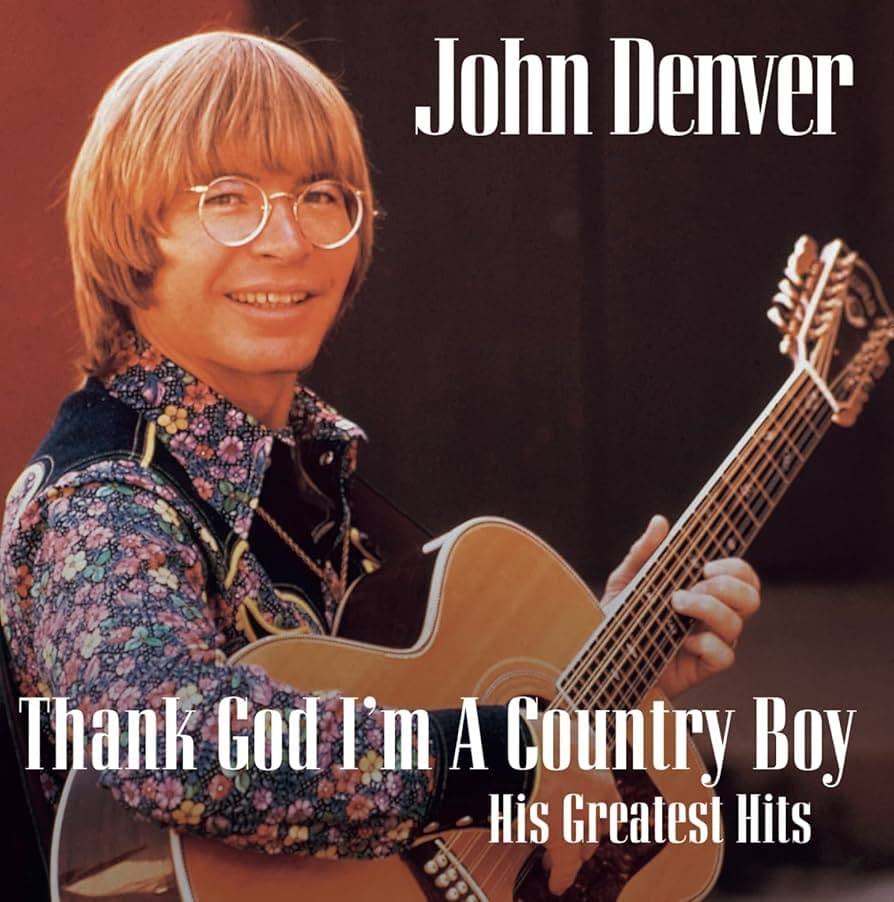
🎻 An Infectious Ode to the Simple, Unfussy Life, Wrapped in Fiddle and Pure Joy
Few songs capture the sheer, unadulterated pleasure of a life lived simply and close to the land quite like John Denver’s exuberant anthem, “Thank God I’m a Country Boy.” It’s more than just a tune; it’s a feel-good snapshot of contentment that resonated across genres and generations, climbing all the way to the pinnacle of the charts.
The version most of us remember, with its infectious, foot-stomping energy, was the live recording featured on his 1975 double album, An Evening with John Denver. Released as a single in March of 1975, this version quickly found a home in the hearts of listeners across the American musical landscape. It achieved the remarkable feat of topping both the Billboard Hot Country Singles chart and the Billboard Hot 100 pop chart, reaching No. 1 on both in late May/early June 1975. This dual-chart dominance speaks volumes about the song’s universal appeal, bridging the gap between Nashville’s traditional country sound and the broader soft rock and folk-pop sensibilities of the 1970s.
The delightful story behind this hit isn’t Denver’s own, but that of his guitarist, banjo, and fiddle player, John Martin Sommers. Sommers penned the lyrics on New Year’s Eve, December 31, 1973—coincidentally, Denver’s 30th birthday—while driving from his home in Aspen, Colorado, to Los Angeles. He recalled feeling utterly “peaceful, happy and content” with his life, a sentiment he bottled into the notes scribbled during his journey. It’s a song, then, born not of professional striving, but of a genuine, overflowing sense of personal gratitude and joy. When Denver heard Sommers play it at a club, he knew he had to record it. The live version, particularly, managed to bottle the effervescence of the performance, complete with a lively audience and an extended instrumental break featuring the old fiddle tune, “Sally Goodin,” which is even lovingly name-checked in the lyrics.
The meaning is as straightforward and pure as the country air itself: it is a celebration of an uncomplicated existence, finding riches not in “diamonds or jewels” or “black limousines,” but in family, hard work on the farm, a loving spouse, and the simple pleasure of playing one’s fiddle as the sun sets. It’s a lyrical rejection of the perceived sadness and materialism of the city, favoring instead a life filled with an “easy country charm.” For many who grew up in that era, or who simply appreciate a return to basics, the song evokes memories of simpler times—of porch swings, corn on the cob, and music that didn’t need complicated production to make you smile. It speaks to the enduring American ideal of independence and the deep satisfaction of honest labor.
“Thank God I’m a Country Boy” became an enduring piece of Americana, transcending the radio waves to become a beloved fixture at sporting events, most famously played during the seventh-inning stretch at Baltimore Orioles home games since 1975. Every time that fiddle kicks in, it’s a powerful, almost visceral reminder of sunny days, good times, and a life lived with heart. The genuine joy in the performance—you can practically see Denver grinning—is what cemented its legacy. It’s a cheerful, defiant hymn of contentment, and we wouldn’t trade it for all the gold in California.